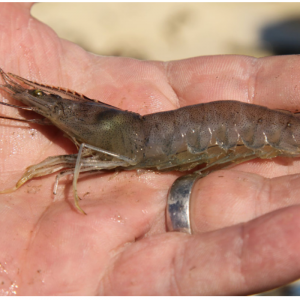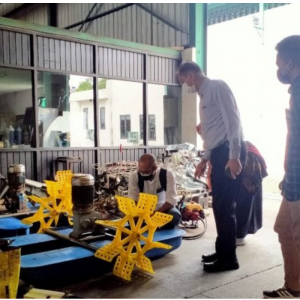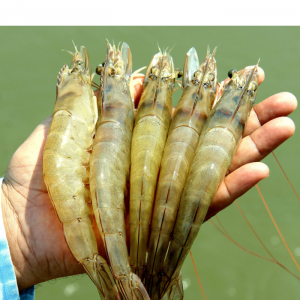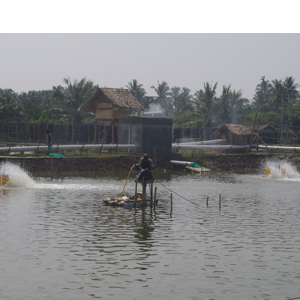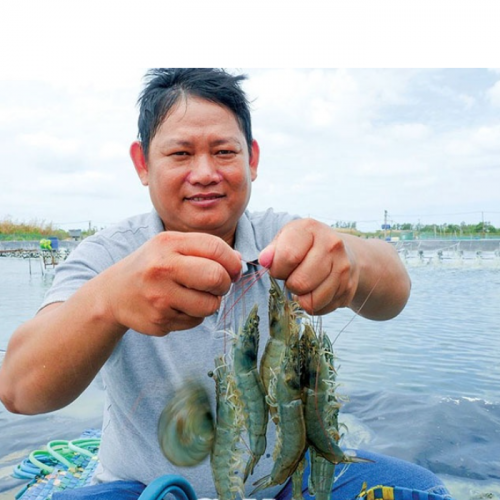
Shrimp Farming by Semi-Biofloc Technology
| Mon, 26 Apr 2021 - 16:25
Through 3 times of implementation, the model of vannamei farming from the project "Super intensive farming of whiteleg shrimp in 3 stages with semi-biofloc technology" of Mr. Ngo Van Thang's household, Cai Nuoc hamlet, Phu Tan commune, Phu Tan district, both yield and price success.
In September 2019, Mr. Ngo Van Thang is one of two shrimp farming households under the super-intensive model from the project “Super-intensive 3-stage white shrimp farming under the semi-biofloc technology process in Phu Tan commune, district. Phu Tan ”.
Over 4 months, from preparation to farming and harvesting the first crop on an area of 3 hectares (1 pond, 2 ponds, 2 settling ponds, 1 pond), Mr. Thang collected 15.5 tons of shrimp type 30 / kg, profit earned over 1.2 billion.
Also read: Control Ammonium and Nitrite When Nursing White Shrimp In Bioflocs
Hate that the model is not only economical but also suitable for his care and management conditions, so far, Mr. Thang has maintained the model, followed the technical process, continued to harvest. 2 more crops and were successful beyond expectations.
Mr. Thang said: “Through 3 seasons, I realized that the semi-biofloc technology was applied to 3 farming stages, helping shrimp to develop quickly, with good resistance, so at the harvest stage, the shrimp always reach the top. child ”.
During the farming process, Mr. Thang complies with the technical process: designing pond infrastructure, from sedimentation ponds, climbing ponds, ponds and waste storage ponds. Treat the pond environment using probiotics, maintain floc throughout the culture period; Strictly control feed in each stage, especially the shrimp duck stage, to ensure the density of floc (the cells of beneficial bacteria stick to form suspended mass in the water environment), food to ensure increase resistance and achieve the highest head rate for shrimp before moving to stage 2 (pond).
Accordingly, in addition to technical factors, effective farming procedures, infrastructure, design area of ponds, settling, climbing and discharging is strictly. The above factors have supported Thang's model to be unexpectedly successful.
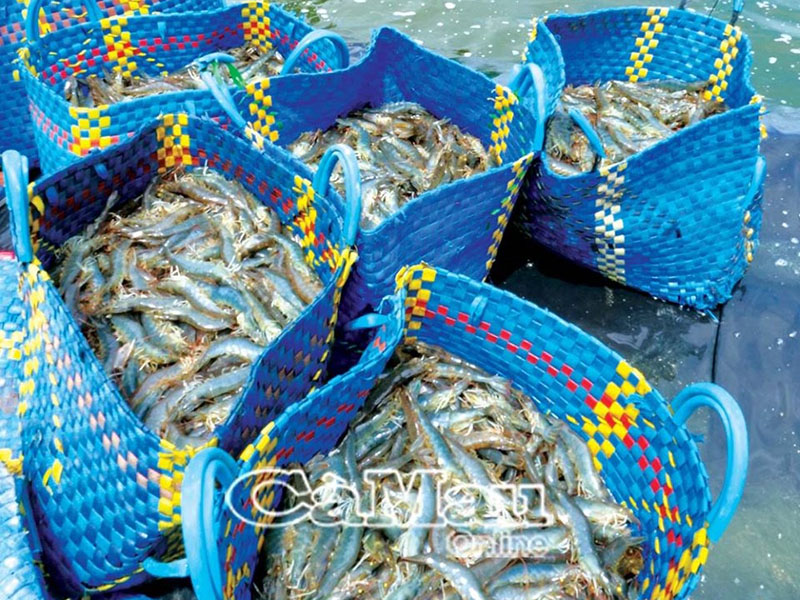
Thang's model of shrimp farming was maintained and succeeded in all 3 crops. The 4th crop of shrimp is reaching size 48 / kg.
Mr. Ngo Van Thang said: “Thanks to a good system of pond construction, together with raising in a Deo pond only 30 days, the 2nd stage only 30 days and the 3rd stage only 30 days, so the pond environment Always clean when properly applied according to the project's technical process, from which shrimp grow quickly, reach the head ”.
With the second crop, Mr. Thang harvests shrimp sized 50 heads / kg, with an output of 9 tons, minus interest expense of over 700 million dong. And this crop, nearly 90 days of farming, the shrimp reached the size of 32 heads / kg, the total revenue was 10.2 tons, except for Mr. Thang's profit, nearly 800 million dong profit.
Also read: Data Sharing for Disease Management In Shrimp Farming: More to Gain
Engineer Ngo Van Luong, Head of the Agricultural Extension Station of Phu Tan district, said: “It is the good control of shrimp density in the pond, good control of feed during feeding along with the use of probiotics. period, water change and water supply is correct and sufficient, so not only well manage the pond environment, shrimp grow quickly, but also adapt, resilient to changes as well as the effects of weather ”.
The fourth crop is also showing a high success rate, with a size of 56 heads, moving from a Deo pond to a pond for only 9 days, shrimp has reached the size of 48 shrimp / kg. With the current high price of shrimp, he promises that this crop will be more profitable than the previous crops.
According to Engineer Ngo Van Luong, since the first successful implementation of Mr. Thang's model, farmers in this type of shrimp farming in hamlets, communes and districts have come to visit, learn techniques to apply pressure. for pond use. Through research, about 70% of farmers apply this process successfully.
Source: Tepbac.com













